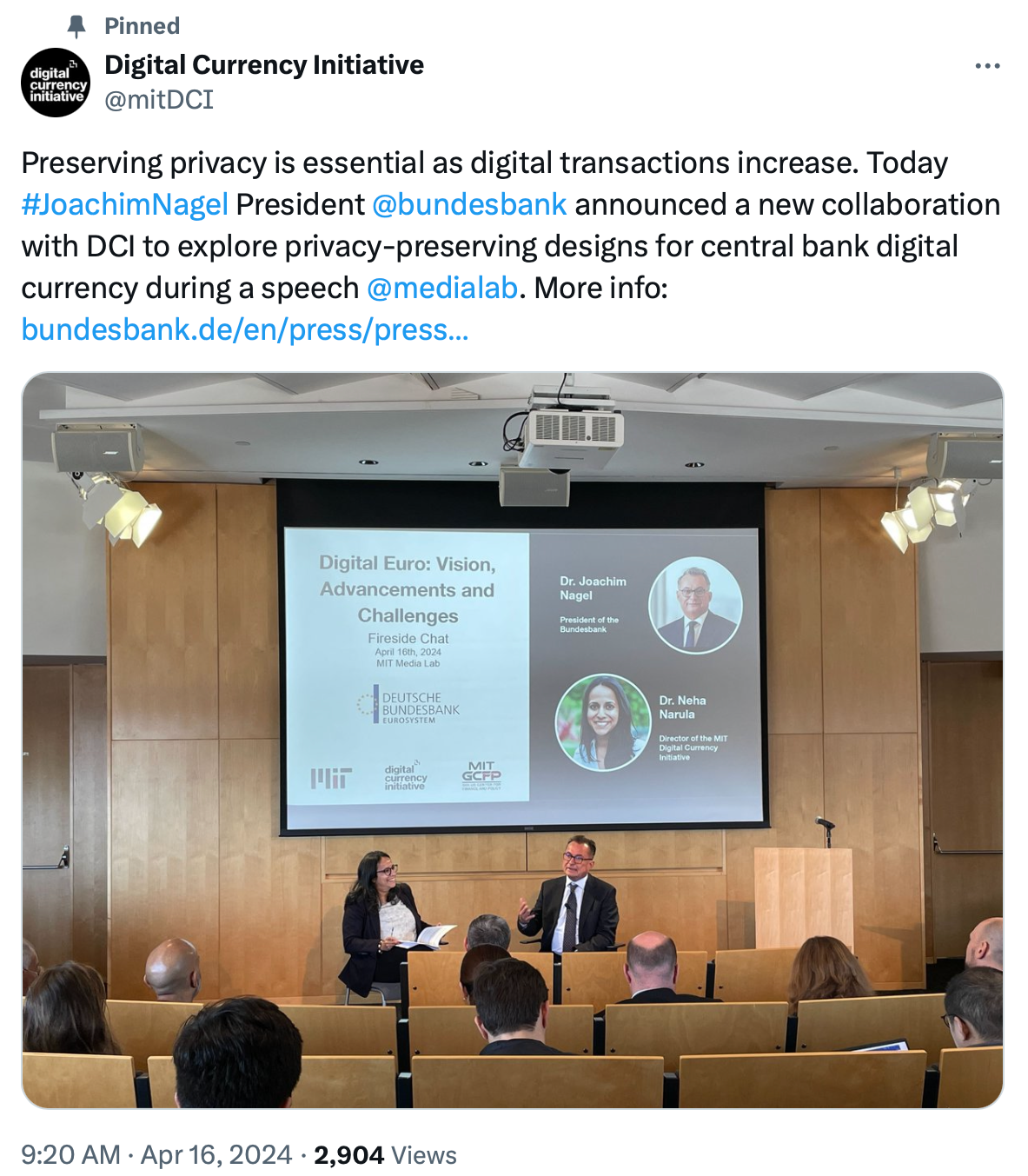MIT & German Bundesbank Embark On Groundbreaking Project To Explore Privacy In CBDCs
The Deutsche Bundesbank has joined hands with MIT’s Digital Currency Initiative, becoming the fourth central monetary authority to engage in collaborative research.

The Deutsche Bundesbank has recently partnered with the Massachusetts Institute of Technology’s Digital Currency Initiative (DCI) to explore central bank digital currency (CBDC). During the project’s launch, Joachim Nagel, President of the German central bank, addressed the challenges lying ahead for the digital euro.
Nagel, addressing MIT students, highlighted that the collaborative research will primarily focus on devising security and privacy measures for CBDCs. A key concern is that existing private digital payment solutions often rely on third-party services, granting access to consumers’ payment data, which can be exploited for commercial purposes. This collaboration aims to address such contrasts.
A digital euro would offer the highest possible level of privacy. The Eurosystem would not have access to digital euro users’ personal information. Consumers would gain more control over their personal data.
Nagel pointed out the shortcomings of the current payment system, stating, “German bank cards, for instance, often face interoperability issues in other euro area countries, despite being linked to an international payment scheme.”
With the rise of digitalization, the Eurosystem is contemplating the integration of “a digital counterpart to our traditional cash product,” Nagel noted, specifically referring to the digital euro. However, alternative options like the United States Federal Reserve’s FedNow service, launched in July, have also emerged.
While FedNow has faced significant criticism, central bank digital currencies (CBDCs) have encountered even more opposition. Concerns regarding privacy and potential impacts on the banking sector are prominent among CBDC detractors. European Central Bank (ECB) officials have begun aggressively addressing such criticisms. In September, ECB President Christine Lagarde denounced conspiracy theories surrounding the digital euro, and ECB representatives have reproached the banking community for not giving CBDC due consideration.

Nagel acknowledged to MIT students that the digital euro, touted as a “risk-free asset,” might exacerbate economic instability during periods of crisis by undercutting banks. To mitigate this risk, Nagel stated that limits on holdings will be implemented for the digital euro. Additionally, he noted that the public’s grasp of the digital euro project remains vague, especially as it is currently in its preparatory phase.
The DCI has forged partnerships not only with the U.S. Federal Reserve Bank of Boston for its Project Hamilton, which explores the potential for a digital dollar, but also with the central banks of Canada and the United Kingdom.
READ MORE NEWS ON
Bitcoin | Inflation Deflation Deflation Inflation Cryptocurrencies
* We hope this information will help you in your investment process, but this is not investment advice. Every investment carries risk, especially in this industry, so DYOR before making a decision.






